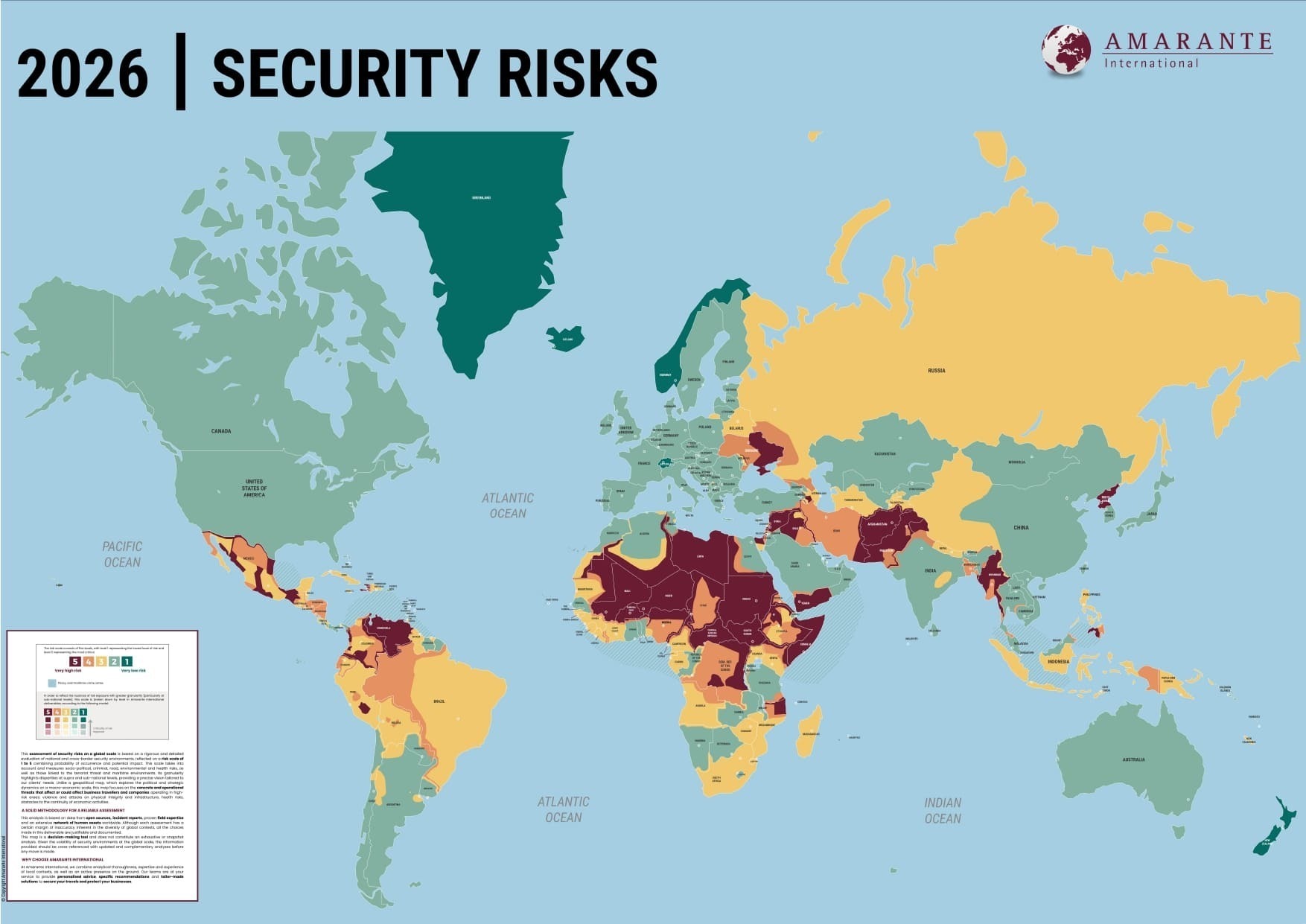Training Program - GSB
General Safety Behaviours
The General Safety Behaviours training course aims to strengthen and broaden business travellers’ understanding of both general and specific risks during their journeys. It also provides general recommendations applicable across all types of contexts and geographical areas. The objective is for occasional travellers and expatriates to acquire the fundamentals of safe conduct by becoming aware of their own values and instincts when confronted with stressful or high-risk situations.
Target audience:
All personnel required to travel to high-risk areas and/or seeking to improve their safety awareness.
Terms and conditions of access
GSB training sessions can accommodate between 8 and 15 participants, depending on the size of the group to be trained.


Entry requirements:
There are no prerequisites. Should a traveller already have knowledge of safety behaviours, they must inform the training organisation. Details regarding the traveller’s deployment conditions must also be shared with the trainer ahead of the session, via a travel form sent by the training provider.
Training venue:
The training may be held online via videoconference or at the client’s premises, provided the venue meets the required conditions for the session.
Duration and organisation:
The training duration varies according to the number of modules selected by the client, ranging from 1 to 4 hours, delivered either online or in person.
Objectives (skills/aptitudes targeted):
The learning objectives of this course are to:
- Identify and use appropriate resources within the company and with local authorities during a crisis;
- Effectively communicate corporate safety protocols to colleagues during business travel;
- Recognise and assess threatening situations;
- Improve the management of personal safety;
- Prevent and adopt appropriate behaviours to mitigate risks in sensitive areas, and share this knowledge with others;
- Acquire essential knowledge and reflexes for personal safety, and pass them on;
- Develop basic team cooperation skills in hazardous situations.
Content, programme, modules:
Each training session is tailored to the client's specific needs and context. Topics covered in the 4-hour format include:
- Travel preparation (itinerary planning, travel documents, health precautions, etc.);
- Stress and emergency management;
- Awareness of the security environment;
- Risk identification and management;
- Behavioural adaptation to context;
- Practical responses to various situations (checkpoints, crowds and demonstrations, verbal and physical assaults, terrorism, kidnapping);
- Communications and reporting to the appropriate authorities.
When delivered in person, the course can be supplemented by geo-specific training, focusing on security risks relevant to a specific local, national, or regional context. In this case, the duration may be extended and the group size increased (one full training day – 15 participants).
Assessment methods (during and post training):
- Initial assessment upon entry;
- Final knowledge validation test.
Monitoring and completion:
- Attendance sheets (or online participation logs);
- Evaluation of learning objectives;
- Training feedback form to be completed by each participant;
- Issuance of a certificate of attendance.
Teaching methods and materials:
AMARANTE Académie provides training grounded in best practices, with approximately 30% theory and up to 70–80% practical exercises for in-person sessions.
Each session includes a training presentation (PowerPoint), which is not distributed afterward. The course is delivered in an interactive format including Q&A sessions, case studies, and experience-sharing.
Accessibility and special needs:
AMARANTE Académie is committed to reviewing each candidate’s individual needs to provide appropriate accommodations, where required. Please contact us as early as possible to discuss your specific training requirements.
Disability advisor: Daniel TSHITUKA - daniel.tshituka@amarante-academie.com
Contact, pricing and registration:
Enrolment requires a preliminary discussion with the academic team and is subject to availability.
For a quote or further information, including upcoming availability, please complete the dedicated contact form via the following link:
Presentation sheet
The PDF of the program will be sent to you by email to the address you provide.
Training is available from EUR 5,000 per session (excl. VAT), depending on the number of participants, chosen location, and selected modules.
A detailed presentation of the training will be sent to the email address provided in the contact form.
We commit to responding within 48 hours to arrange a discussion and assess your needs in greater detail.
Training team:
A dedicated training team will be selected from among our certified instructors to suit your specific needs.
All trainers possess substantial experience and in-depth knowledge of travel risks in sensitive areas. They remain available throughout the course.
Depending on their profile, trainers have:
- Direct experience managing traveller safety in high-risk environments (unstable zones, conflict areas, hostile environments);
- Formal training in safety, crisis management, geopolitics, or strategic intelligence from recognised institutions;
- Expertise in prevention, anticipation, and response protocols for risks faced by travellers (kidnapping, surveillance, extortion, natural disasters, political instability, etc.).
Performance indicators (2024)
Success rate
98,39%
Dropout rate
1,61%
Satisfaction rate
87,88%
Response rate from participants: 41,94%.





